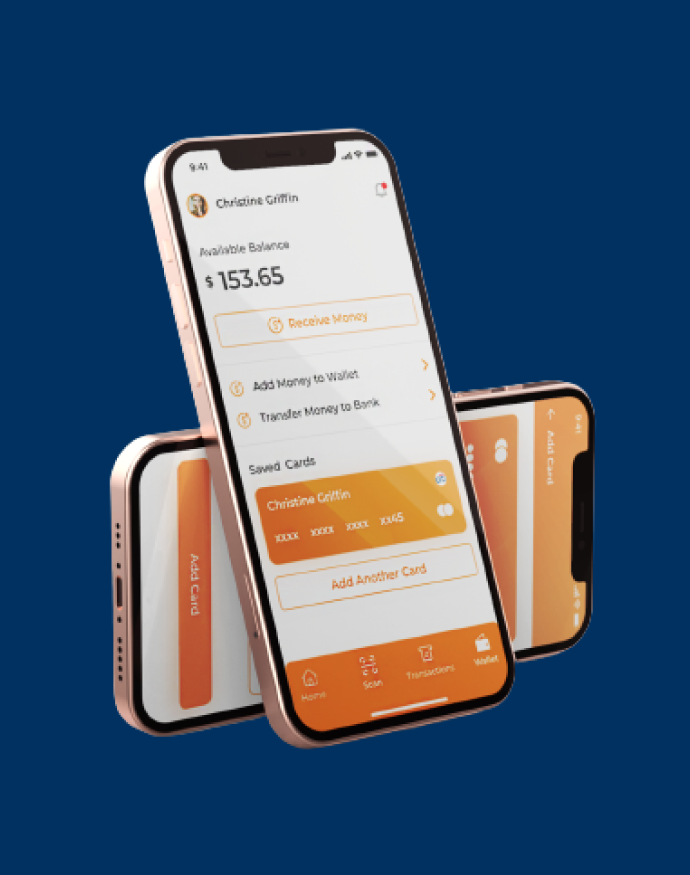
Are you choosing Between Payment Gateway & Payment Processor? Let’s talk!
People say happiness can not be bought, yet most of us would like to think otherwise after we buy ourselves the long-overdue goodies we have been eyeing. It goes without saying that money has become an essential and irreplaceable factor in our lives. From the time when we learned to use the barter system, till now, where we can use online transactions, and look for the best stock trading apps, money rules our world. However, we also need to remember that with transactions comes a need to ensure security. One wrong move, and all of our savings face a potential threat. Therefore, it is essential that we lookout for the best alternative to keep our finances safe.
As a merchant, it is essential to possess a tool that handles transactions and ensures efficiency and safety for both the merchant and their customers. The question that is raised after that is how to select the best tool to handle these finances? A lot depends on the correct payment gateway, such as the currencies one can accept, transaction speed, justified transaction fee, and a lot more. So today, let us discuss choosing between a payment gateway and a payment processor.
Choosing Between Payment Gateway & Payment Processor
Before we get down to basics, we must understand the differences between Payment Gateway and Payment Processor. How are they different? Do they affect finances differently? Which is the better choice? Well, let’s find out!

What is a Payment Gateway?
Have you ever used a payment app to send or receive money? You may have also used the same app to request money or approve someone else’s request of asking for money. Well, you are able to do that because of Payment Gateway. Shocker, isn’t it? To use something for so long but not knowing such a big thing about it?
Payment Gateway is an interface that allows financial exchanges between a business and a payment processor to put in technical yet straightforward terms. Companies and merchants essentially use the application service provider. The payment requests from the entrepreneurs are forwarded to payment processors, where further steps are taken.
Payment Gateway is responsible for various kinds of payment modes. Such as Authorization, wherein a demo transaction takes place to check if the customer has the financial capacity to pay for the order they have made. This is then proceeded by capture, where the initial demo transaction is finalized. This method is noticeable in long-term orders, which take time to manufacture or ship.
The next payment mode is a sale, wherein, like authorization, a deal is made, but the payment may not be proceeded with later. We usually see this in subscriptions. Lastly, there is a refund, which is pretty self-explanatory. The money is transacted back to the customer, and the void is another form of reimbursement, except the money was never sent to the merchant to give back.
What is a Payment Processor?
A payment processor is essentially an interface that directly deals with card networks, such as MasterCard or VISA. The processor’s task is to convey requests from payment gateways and send them over to the networks mentioned above. The transaction is then authorized after it goes through the card issuing bank.
Payment processors are also known as acquirers. The system comprises a complete payment processing engine that takes care of chargebacks from the bank that issued the transaction while even entertaining settlement requests and real-time transactions.
What Makes Payment Gateways Different From Payment Processors?

To a large extent, the two systems look a lot similar, but they are quite different in reality. However, different does not mean the opposite. On the contrary, these two systems often work together to provide the best experience to the merchants and clients who use the methods for their monetary transactions.
The process goes somewhat like this; the transaction is issued over an e-commerce platform by the customer when they decide to purchase something, website, or phone call. They send their details, which are then encrypted into data and sent to the merchant’s web server. The merchant then passes on the transaction to the payment gateway; the payment gateway transacts the issue to the payment processor.
The job of the payment processor now is to pass on this request to the card network responsible. Herein, the data is verified, and once the credit is checked, it is sent to the bank. The bank then decides whether to accept or deny the request and the information, which is transaction status and error details, is sent back to the payment gateway. The data is then passed back to the website, and the customer is sent a notification about their payment status. Within a day or so, the money reaches the bank account.
So, what makes them different? A payment gateway is more of a communication tool; it helps the client know of the authorization, cancellation, and acceptance of the issued transaction. It can also authorize payments in some instances wherein cards are not used. A payment processor is a tool used primarily to allow the said transaction, be it of any kind. The device has the ability to transmit data between the merchant, their clients, and the bank in question. They are making transactions relatively effortless.
Payment Gateway or Payment Processor, Which Do I Pick?

A payment gateway is undoubtedly one of the more convenient ways to go for a merchant seeking easy integration. However, it comes with its pros and cons, one specific con being the additional cost the merchant has to bear. A few factors should be considered before choosing between a payment gateway and a payment processor.
Settlement
The settlement is not that common a term for the customers, but merchants know this word. To put it merely, a settlement is an ultimate amount charged and transacted from the client or the cardholder who initiated the transaction. Ideally, the amount reaches the merchant soonest. The choice one determines this makes of a payment gateway or payment processor.
A payment gateway takes care of the settlement procedure without involving the merchant as such. It is the payment gateway system’s responsibility to ensure the amount reaches the merchant. On the other hand, the payment processor expects the merchant to be involved in the process. An end-of-day settlement request is expected from the merchant’s end, and the settlement file is also likely to be handled by the merchant till it is imported back into the system.
Integration and Cost Time
The time and money integration consumption are low in the payment gateway instead of the payment processor. Time and money consumption is significantly higher in payment processors. One of the main reasons for the same is that integration needs to occur in their ISO 8583 platform and require to undergo their certification.
Compliances
Compliances are the standards and rules that businesses have to follow to keep their customers’ data and information safe. The aim is to keep the customer’s information while conducting a transaction through their cards secured and protected. The payment Card Industry, better known as PCI, regulates and handles these compliances.
Payment processor requires such structural compliance to obey to make card transactions safer. Payment gateway deals primarily with the ISO 8583 platform and the certification process of the payment processor. A payment gateway is economically priced in this regard if compared to the payment processor.
Total Transaction Volume
Total Transaction Volume is primarily the number of transactions made and each transaction’s size within a given period. This range varies with every different payment gateway or payment processor. The fee rates, too, differ from one processor and gateway to another. The majority of payment processors charge relatively low rates for significant transactions. However, small businesses with lesser total volume transactions should go for a payment gateway, as it is the smarter choice.
To Sum Up

Payment gateway and payment processor usually work hand in hand to make transactions easy, safe, and convenient for every party. However, based on the size, type, and form of the business, a merchant can choose either of the tools. Understanding the legalities and how much the merchant can afford the instruments play a significant and decisive role. It is advisable to do sufficient research, make an informed decision regarding finances, and take up a considerable chunk of the business’s purpose.
There are multiple payment processors or payment gateway options to choose from. Ensure that you are well acquainted with the form that is best suited for you. It is not recommended that one goes for a trial and error process because it will lead to a loss in all probabilities. At Idea Usher, we have a sufficient understanding of how to use payment gateway best, and we are beyond happy to consult with you and figure out a payment gateway system that best suits your needs. If you so wish, let’s set up a date, shall we?























